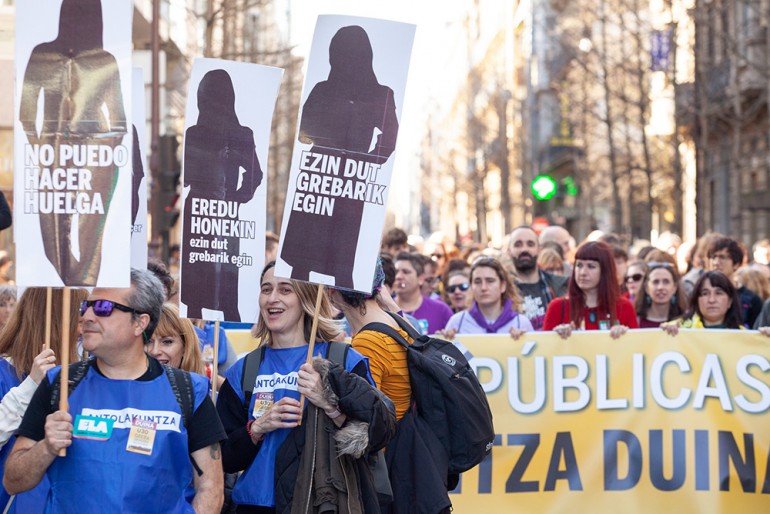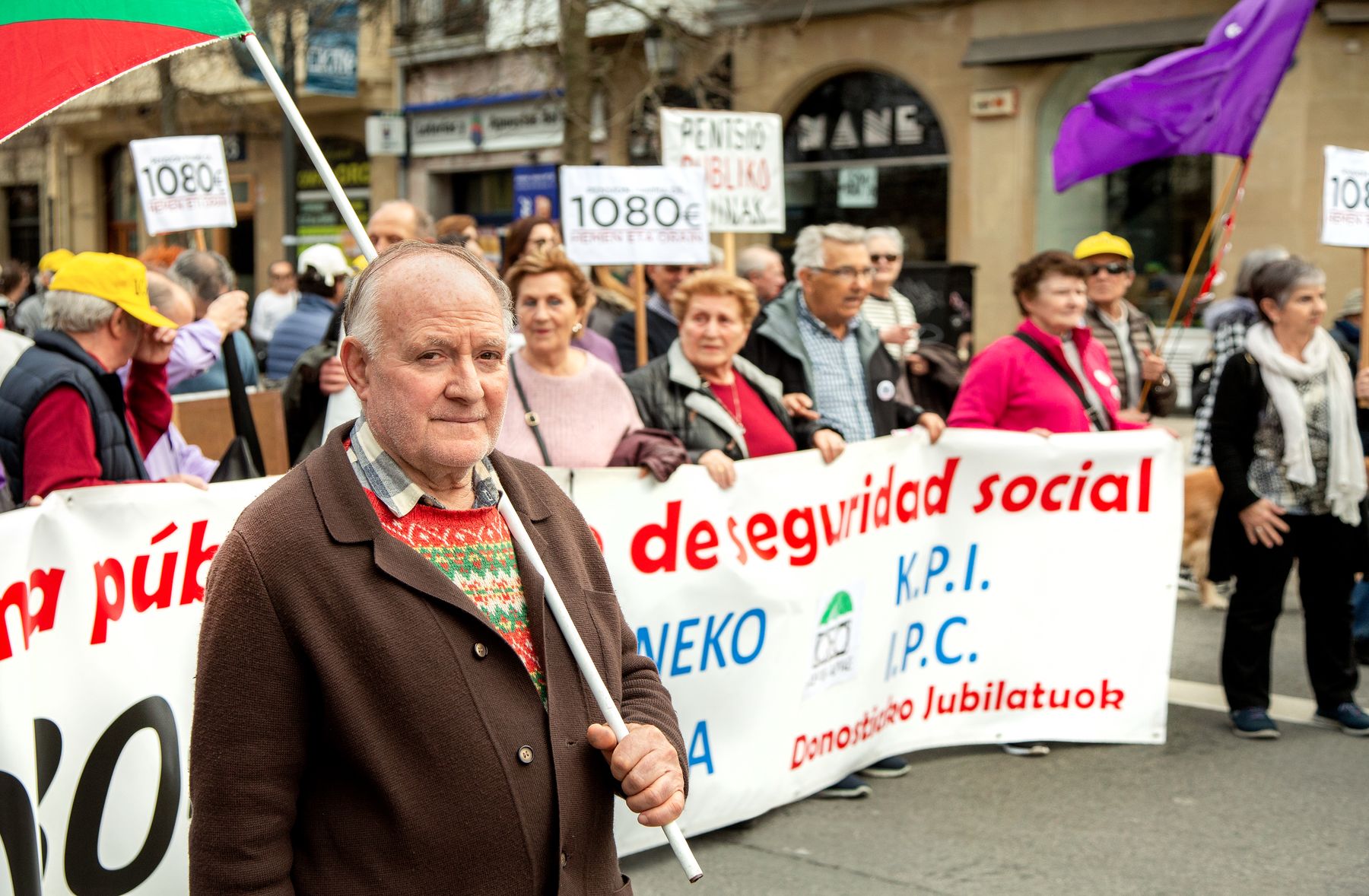Feminist Movement of the Basque Country: "The general strike is going to be feminist"
- The Euskal Herria Feminist Movement has joined the general strike called for January 30. At the press conference held this Wednesday in Bilbao, they have specified what their demands are for anyone who summons and calls for a strike to take them on board.

As reported by the Feminist Movement at a press conference held this Wednesday in Bilbao, the Euskal Herria Charter of Human Rights has joined the general strike called for on 30 January. After meeting on 14 December last, members of the feminist movement to reflect on the strike, they decided to join the call. “The general strike is going to be a feminist,” they have firmly affirmed.
They have shown their intention to repeat the demonstration of strength that the feminist movement has carried out in the last two years in the strikes on 8 March. In this sense, the networks that acted on 8 March in many parts of the Basque Country have considered it essential to continue working, as they showed “strength, mobilizing and transforming capacity”. In addition, they have asked the unions and agents that are part of the Charter of Rights of the Basque Country to assume the demands of the feminist movement and “put on the table the responsibility of working them for the strike commissions that will be created in the towns and cities”.
They have launched three main demands, “based on the teachings of the latest feminist strikes”: “No to precarious life”; “Various lives without male or heterosexual violence”; and “lives free from racism and war”.
Regarding the first claim, considering that capital makes the reproduction of all forms of life an economic resource, they have demanded that “on this planet with limited resources the collective sustainability of life is guaranteed and the interdependence is recognized”.
With the second claim “in the face of the ways of being and feeling imposed by the system”, they have stated that women, mourners and trans rise up. They understand that this requires rebellion before all the institutions of society, and that the heteropatriarchal system is reflected in all of them.
With the third claim, colonialism has been launched and in front of it the defense of bodies, territory and land has been proclaimed: “In the face of the racist and fascist offensives that cross our territories, we demand the elimination of the covenants that strengthen the colonial order, which plunder and destroy our bodies and territories, both in the north and in the global south. We demand the return of sovereignty to peoples in all areas of life, for their survival and sovereignty.”
On the way to the feminist general strike, to do some things
The feminist movement has confirmed that the general strike will be a feminist, but has stressed that on the way to that goal the rest of society needs company. They have therefore asked the trade unions and social partners, as well as the committees to be set up, to accept their demands. In addition, they have made other requirements: putting lives in the center and collectivizing care.
On the one hand, the importance of putting lives at the centre has been mentioned, “to deal with violence, inequality, precariousness, hegemonic models of sexuality, the sexual division of works, the model of consumption, the patriarchal family, the hierarchy of knowledge, racism, the canon of beauty and all oppression”.
On the other hand, they have proposed to carry out a “collective exercise in the management of care” so that the work of care “does not fall into the process, the contents and the women that are part of the feminist movement on the same day”. “We know that we have little time to attend and take care of the process of organizing the strike, but we believe that our presence is necessary to feed the struggles we have on the table,” they explained.
18 January, strike
They recalled that, beyond the decision to join the general strike at the assembly on 14 December, they also had room to agree on some issues. Regarding the process until the day of the strike, the feminists have decided to make the demands of the feminist strike visible and participate in the strike commissions; in this sense, they have set 18 January as the day to carry out the actions.
Regarding the day of strike, they propose wearing the purple cuff, showing the works that women do for free by hanging the aprons in the windows and balconies, and symbolically symbolizing the presence of women who will not be on strike – prisoners, household workers, caregivers, murdered by male violence….
Hego Euskal Herrian arrazoi soziolaboralak edo politikoak direla medio, greba orokor bat deitzeak bere jarduera guztia geldiaraztea bilatzen du. Batzuentzat urtarrilaren 30eko greba orokorra arrakastatsua izan da, eta beste batzuentzat porrota, bakoitzaren betaurrekoen arabera.
Urtarrilaren 30eko Greba Orokorraren biharamunean, grebak suposatu duenaren inguruan hausnartzeko tartea hartu dugu Sonia Gonzalezekin.





















